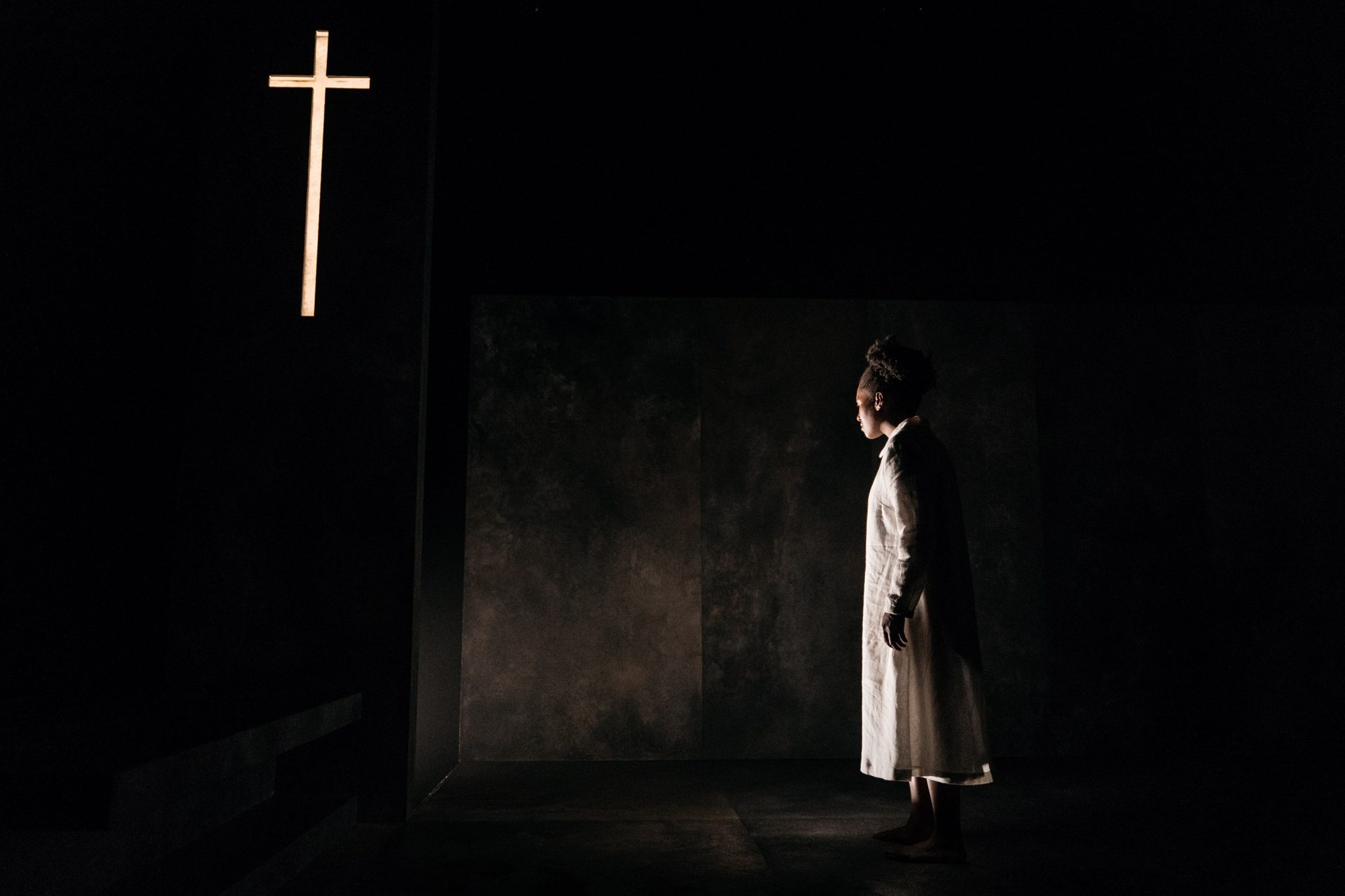Meek, created by Headlong and Birmingham Repertory Theatre, is one of two plays Penelope Skinner has at this year’s Fringe. A dark, mysterious drama that takes place in a a Scandinavian dystopian land, the story told onstage is said to be translated from “an imaginary unknown Scandinavian language.” However, what Meeks comes to be could be based on real life events and – rather disappointingly – lacks any real imagination.
The story begins with Irene (Shvorne Marks), a factory worker imprisoned for writing and performing a love song. In this state-controlled, Christian society, freedom of expression is not allowed, and Irene has therefore been accused of influencing the people. Women have no equal rights to men and are unable to leave home without a chaperone; as the story progresses, we realise that she has sinned in more ways than one – we discover she has been involved in a love affair with a married man. Rather than focus on this, Meek tells a story of friendship, love and self-control in a world where it’s difficult to have any. As her message spreads oversees to Europe, there is hope that she may have a better life. But two questions persist: Who betrayed her? Who reported her to the authorities?
Unfortunately we only meet three characters throughout the drama, and the government and other crucial characters remain unseen: one particular absent figure is the muse who has inspired her work. Production-wise, the costume and scene changes were seamless, taken on by the cast. With a simple grey set for a prison cell, its sombre colour reflecting the darkness of the writing, the stage is lit with an illuminated cross that shines down on the characters. Only a childhood friend and Irene’s lawyer appear to keep her company.
The quick, fast-paced script allows the three actors to build the tension and emotion effectively. Scarlett Brooks as the anxious friend Anna owns the stage towards the end as she takes on an emotional monologue. Elsewhere, however, the story loses focus and energy; the predictable outcome turns Meek into an all too familiar tale similar to Margaret Atwood’s The Handmaid’s Tale. In an imaginary land, where Atwood’s novel and the series of the same name wasn’t so popular, Meek may have had more of an effect.
